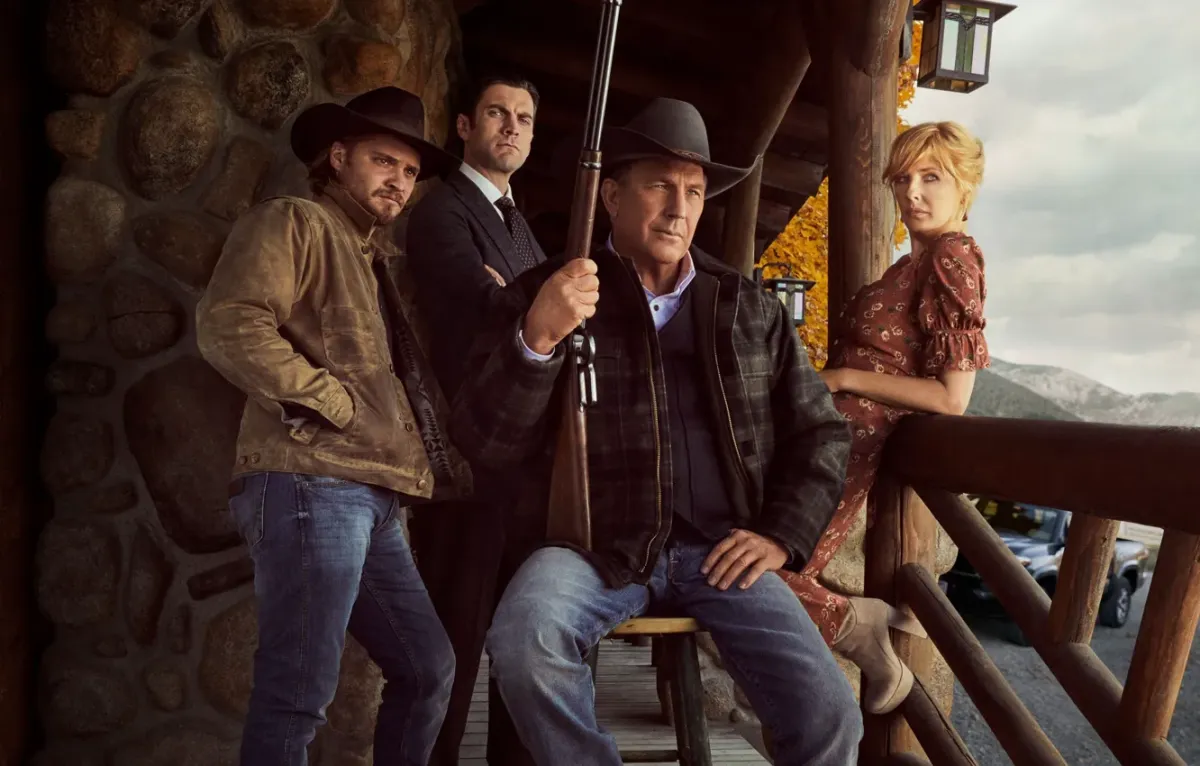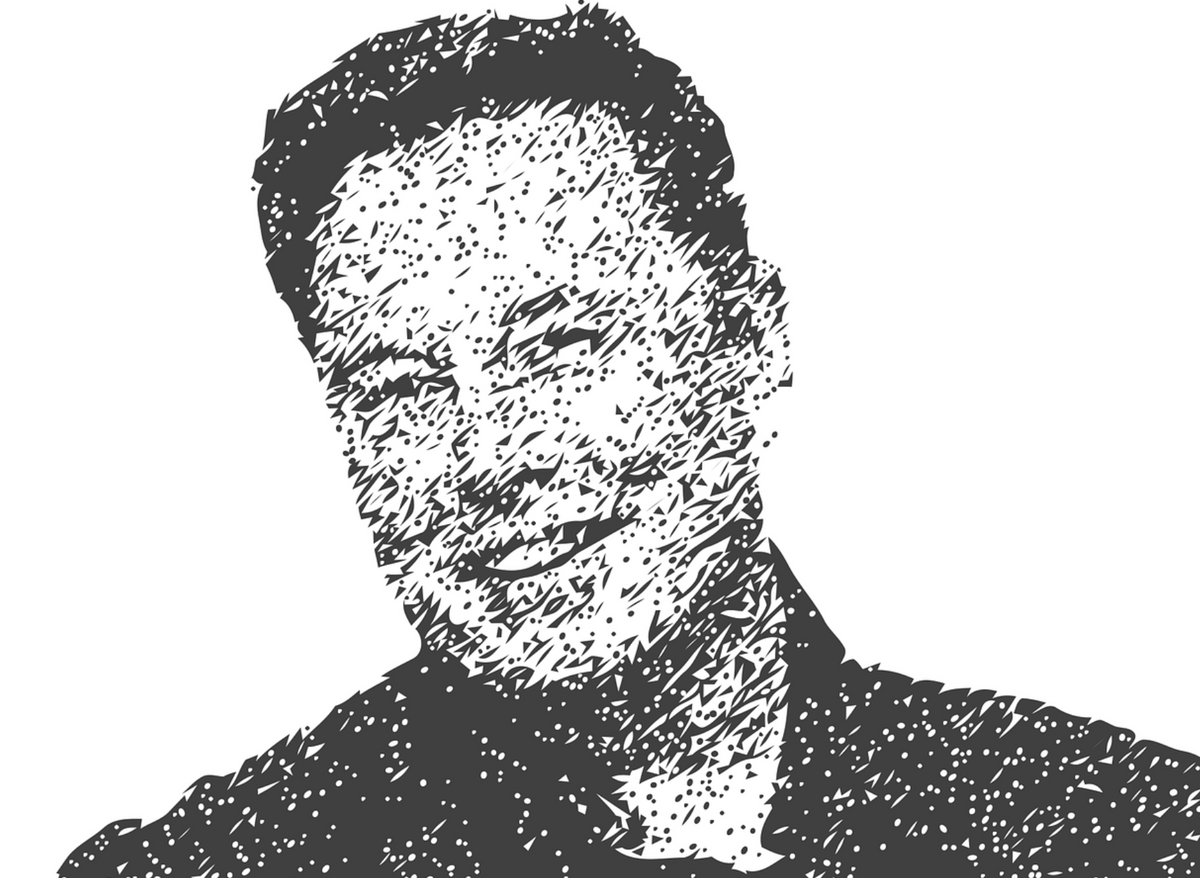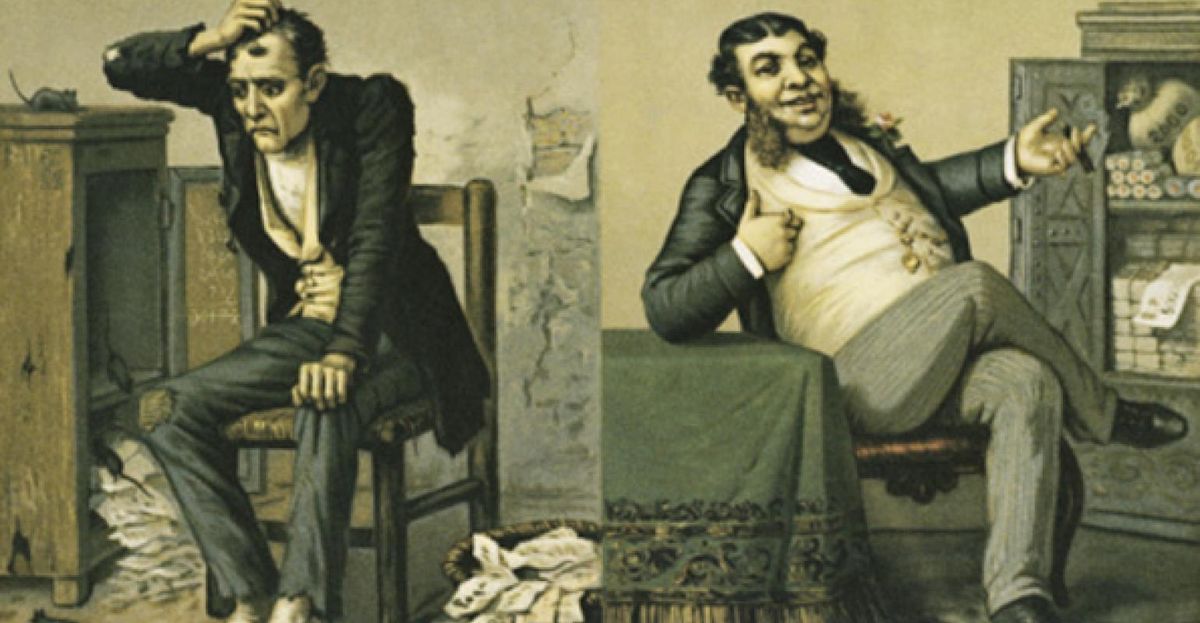The Authoritarianism At The Heart Of 'Yellowstone'
Yellowstone normalizes and celebrates the brutality of capitalism and fascist thought. You should give it a watch.

Today's essay was written by Anthony Reimer, an insightful and funny member of the Bad Faith Times discord and a contributor to the site.
I don’t really have hobbies. I guess the closest thing I have to a hobby is fantasy football, though this last season has really tested my love of the game. Like many of you, I spend a not-insignificant amount of time online, shit-posting my way through this capitalist hellscape, which thankfully includes some pretty great TV.
When I need a break from doomscrolling, I, like any red-blooded American, wind down from the day by watching television, particularly prestige dramas. Breaking Bad, Game of Thrones, Mad Men—shows with high production values and phenomenal acting. One of the few good things about living in the future is that we get high-value TV shows on demand. I know Netflix, Amazon, and Disney are monopolistic, evil corporations that stifle artists and have abhorrent labor practices, but damn if they aren’t convenient. So it goes.
One of my favorite shows I’ve binged over the last couple of years is Yellowstone, a show about ranchers in Montana. Something about Rip, the ranch’s enforcer, beating the shit out of a cattle thief or watching Beth Dutton eviscerate some asshole in a suit just hits me in the sweet spot. So, having enjoyed Yellowstone, I watched all of the shows created by the showrunner Taylor Sheridan. When I came across Landman, a show created by Sheridan with Billy Bob Thornton as the lead, I knew I would be a fan before I watched an episode.
I appreciate the folks supporting BFT. Consider subscribing for $3 or $5 a month, or leaving a tip!
The show is fantastic. A few episodes in, Sheridan, through Thornton, used one of his favorite go-to moves: having the show’s protagonist tell some liberal (usually a young woman, not coincidentally) who just doesn’t “fuckin’ get it” how the world really works. Well, as a leftist who very much does “get it,” I instantly started a counterargument in my mind. I don’t know why I’m like this, but I can’t help myself. It’s like I’m preparing for a debate that is never coming. As I sat there telling Billy Bob Thornton how wrong he was about clean energy, how pretty much every expert agrees that we have to use fossil fuels to get off fossil fuels, and that we need massive state investment in infrastructure akin to World War II to combat climate change, I realized something: I argue with these shows a lot.
Taylor Sheridan’s shows are conservative. Not necessarily the type of racist, asshole conservatism currently practiced by people in power, but the shows’ characters are literally trying to conserve a way of life that is constantly under threat from the most insidious of foes: Human progress. At the heart of Yellowstone is the conflict between preservation and progress. John Dutton—the owner of the ranch and family patriarch—is fiercely protective of his land and resistant to change. He is beset on all sides by greedy land developers, Native American tribes, and politicians who all want his land for their own.
There is an emphasis on “his” land. Dutton owns the largest contiguous ranch in Montana. The exact size isn’t mentioned, but it’s compared in size to the state of Rhode Island. It is taken as an unquestionable fact that he is entitled to own this land. The issue of John’s obscene land ownership is really only raised one time, when a Chinese (communist) person told him that no one person should own this much land. In response, Dutton defiantly shoots his gun in the air and tells the man, “This is America; we don’t share land here.”
Never mind that the Duttons essentially stole the land through state-sponsored violence inflicted on the native population. That the family owes ownership of the land, and thus their vast wealth, to a government program – the Homestead Act – is never mentioned. This is the enclosure of what should be common land into private property. The Duttons’ attachment to their land is portrayed as noble, but it underscores their role as capitalists who prioritize ownership and control over the collective use of resources.

John Dutton is the embodiment of the land-owning capitalist class. He uses and exploits the proletariat—the ranch hands that do the day-to-day work—who are depicted as loyal but ultimately expendable. The Duttons owe their vast wealth to generations of extracted surplus value. While the show often glorifies the cowboys and their loyalty to the Dutton family, it also depicts them as being lucky to have the opportunity to work the land, rather than the Duttons being lucky to have a labor force willing to do the work for them. Instead of exploitative, it depicts John’s relationship to his workers as paternalistic. John, the capitalist, knows best, so shut the fuck up and do what you’re told. Trust that he has your best interests at heart.
This may be true with John, but it obscures the authoritarianism strain at the heart of his relationship with the laborers.
Capitalism is completely unquestioned in Sheridan’s shows. Rather than having a class distinction, the world is separated into “good” rich people and “bad” rich people. The show’s protagonists are good rich people. They are fair to their laborers, and even when they do bad things, they do it with noble intent. The show’s antagonists are bad rich people—greedy land developers only out for themselves who want to ruin the land and the great state of Montana. The show laments “transplants,” people who move from out of state, even as the family benefits from the state’s tourism. These people don’t deserve to be in Montana; only the people whose ancestors stole the land a hundred years ago are deserving. Whether or not the protagonists are deserving of their vast wealth and power is never questioned.
Sheridan has a clear disdain for the coasts and the people who live there. Every asshole tourist or transplant is from California, and every greedy businessman is from New York. The most annoying character on the show is a ridiculous stereotype of a California liberal who advocates for the environment and against animal cruelty but seems to not know anything about climate change or animals. It is up to the family, the real Americans, to put these coastal elites in their place.
"It's wrong for one man to own all this."
John Dutton’s wealth and influence allow him to manipulate the legal system, law enforcement, and politicians. Rather than being a critique on why someone having this much power is corrosive to society, buying politicians is seen as business as usual. Both sides are doing it, so better the politicians be bought by John. If you listen closely, you can hear the echoes of Trump's initial appeal to American voters in 2015.
In fact, any politician who isn’t for sale, or really anyone guided by ideology or principles, is treated as naive. It is only the most craven, despicable politicians that get anything done (On a side note, politicians are portrayed as being way more intelligent than they actually are. The show acts like they’re all Machiavellian masterminds, meanwhile real-life Montana politicians are doing some of the stupidest shit imaginable). When all politicians are for sale, why should we ever trust any of them to help us? This type of logic feeds directly into fascist thought. We’d be better off if we just had a strongman who would tell us who our enemies are and take control of these charlatans in power.

While it portrays anyone with an ideology as naive, the show is extremely ideological. The Duttons are portrayed as rightful stewards of the land, embodying traditional values of family loyalty, hard work, and rugged individualism. This narrative serves to legitimize their dominance and justify their actions, no matter how ruthless. They are portrayed as heroic and flawed, reinforcing the idea that their power is natural and inevitable—that they are deserving of their place atop the social hierarchy, systemic inequalities that underpin their wealth and influence be damned. Yellowstone, and all of Sheridan’s shows, perpetuates the ideology of capitalism, which is so much the default in our society that its proponents can claim to be apolitical.
Capitalism in the US is all but invisible, like the air we breathe. It naturalizes class hierarchies and obscures the exploitation at the heart of the system.
There are no systemic critiques in Sheridan’s shows. Everything is individualized. While he is brutally honest about the treatment of indigenous people, the Native population trying to reclaim their land isn’t shown to be a movement for justice and equality; it is largely portrayed as a story of individual ambition and personal vendettas. There is no “system” holding anyone down. There is no exploitation. There is only a man and his work ethic. This is best evidenced by Rip Wheeler, a man who built himself up through work ethic and sheer will—from a kid on the run who just murdered his father to running the day-to-day operations of the ranch. It doesn’t matter that Rip is asked to murder people or cover up the family’s crimes; he worked his way up to be somebody! You could do it too, if you weren’t so fat and lazy. So stop blaming capitalism for your problems and pull on those bootstraps. The fact that in America, the greatest predictor of future success is the zip code in which you were born is inconsequential.

While the show is mostly socially liberal, gay people don’t really exist in Sheridan’s world. In what is probably a rallying cry against “woke” Hollywood, no one on his shows is gay or trans. It isn’t a very diverse cast, though it seems to subscribe mostly to the libertarian view on social issues: You do you; leave me alone. This may be well intentioned, but it is inadequate and naive. We cannot hope to have an equal society for marginalized people without social justice movements. We must undo the sins of the past to build an equitable future.
Sheridan’s shows aren’t necessarily sexist. He writes excellent female characters, but they do subscribe to the patriarchy. In his world, men need to be men in the most traditional sense. They’re surrounded by strong women, but the men are clearly dominant and running the show. Society is built by great men doing great things. This is the natural order. Women can contribute, but only in service to a man. This type of logic— that history is driven by great men rather than movements of people pushing an unwilling society towards progress— is corrosive. It prepares people to accept that a strongman will come in and change their lives for the better. It also upholds and perpetuates what is an otherwise unjustifiable hierarchy of men on top and women in their place.
Sheridan subscribes to what might be called “common sense” conservatism. The problem with this is that what’s common sense is vague and up to interpretation. It may be “common sense” that love is love to one person, while it’s “common sense” to another person that the Bible says LGBTQ folks will burn forever in hellfire. Fascists love this vagueness. They blur the lines of what is common sense to push their insidious agenda. Hitler urged Germans to believe it’s common sense that Jewish people were lesser beings trying to destroy the great Fatherland. Trump is trying to make it common sense to have a militarized border and round up undocumented people, who are also – according to him and his backers – inferior and destroying the country. Sheridan isn’t doing this intentionally, but his politics contribute to it all the same.
I want to reiterate that I love these shows. They are well written and well made. The characters are complex, and the stories are engaging. So please, watch them. You’ll probably enjoy them too. Just make sure you’re engaging with these shows critically, questioning the ideology on which they are founded. And understand, when a character goes on a long monologue about how the world works, he’s probably full of shit.
Follow Anthony Reimer on Bluesky at @areimer.bsky.social.



Comments ()